With “Brothers, Written by Sisters,” a jewellery brand recasts a beloved tradition—turning sentimentality into storytelling and resistance into reflection
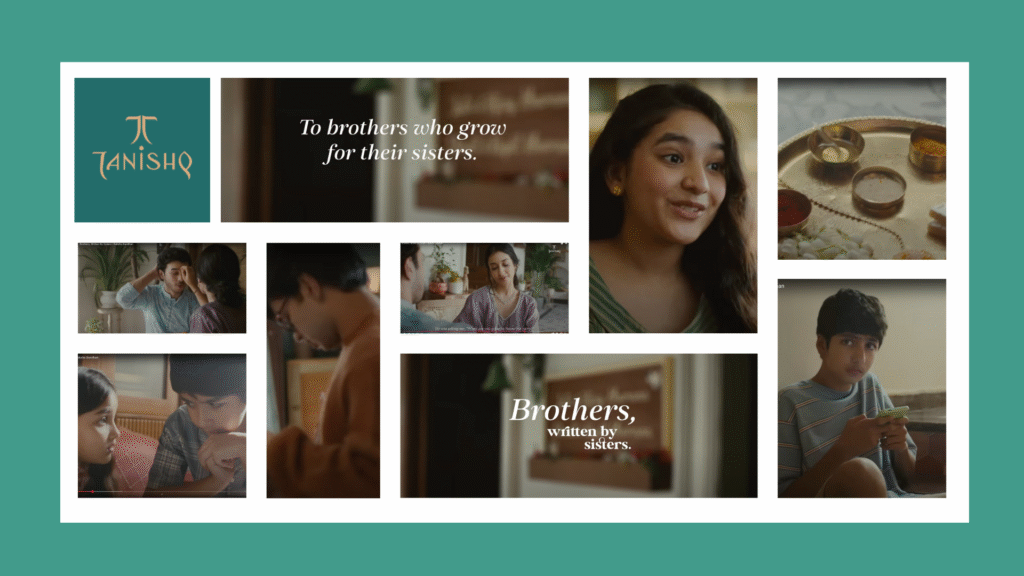
Scenes from Tanishq’s “Brothers, Written by Sisters” campaign capture modern siblinghood and the evolution of family roles in Indian homes.
As the warmth of late summer recedes in India, the air thickens with anticipation for Raksha Bandhan. Across living rooms, from bustling cities to quieter suburbs, the familiar flurry repeats: sisters carefully tying rakhis, brothers receiving them with varying degrees of feigned bravado, and households awash with gifts, sweets, and age-old scripts. Yet, in 2025, a singular advert from Tanishq tiptoed into the cultural conversation—not with spectacle, but with quiet provocation, upending what has long gone unquestioned.
A House with Everyone’s Name
The film’s opening scene is notable not for grandeur, but for its ordinariness. A daughter, standing at the threshold, questions a small, everyday relic of patriarchy: the house nameplate. “Dad, why’s it just your name outside? We all live here, don’t we?” In six seconds, hierarchy is questioned, tradition nudged. Soon enough, a new nameplate appears—no longer a singular claim, but an emblem for collective belonging.
“Shouldn’t everyone’s name be there? We all live here—it’s our house too.”
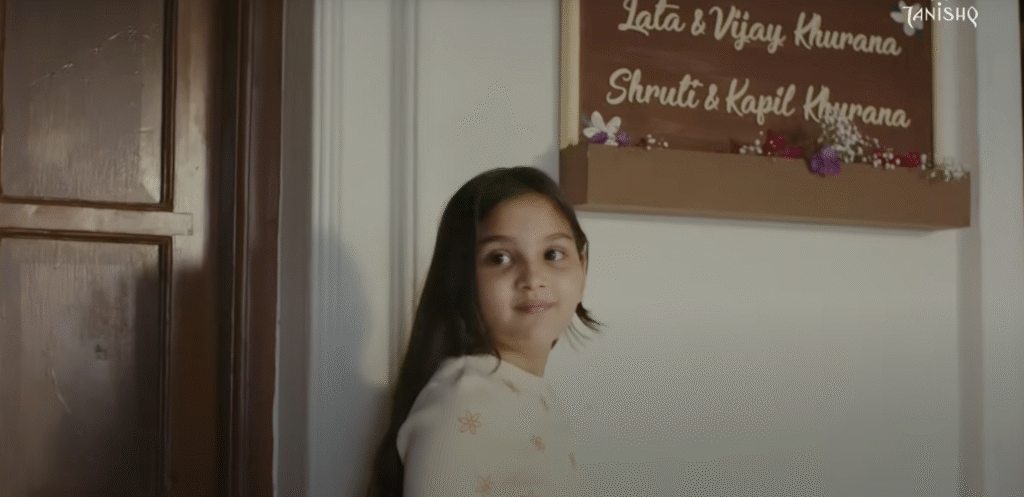
This is not the angst of a rebellious teenager, but the gentle insistence that family means all its members count equally—a message that swells far beyond the entrance gate.
Chores, Choice, and Gendered Rituals
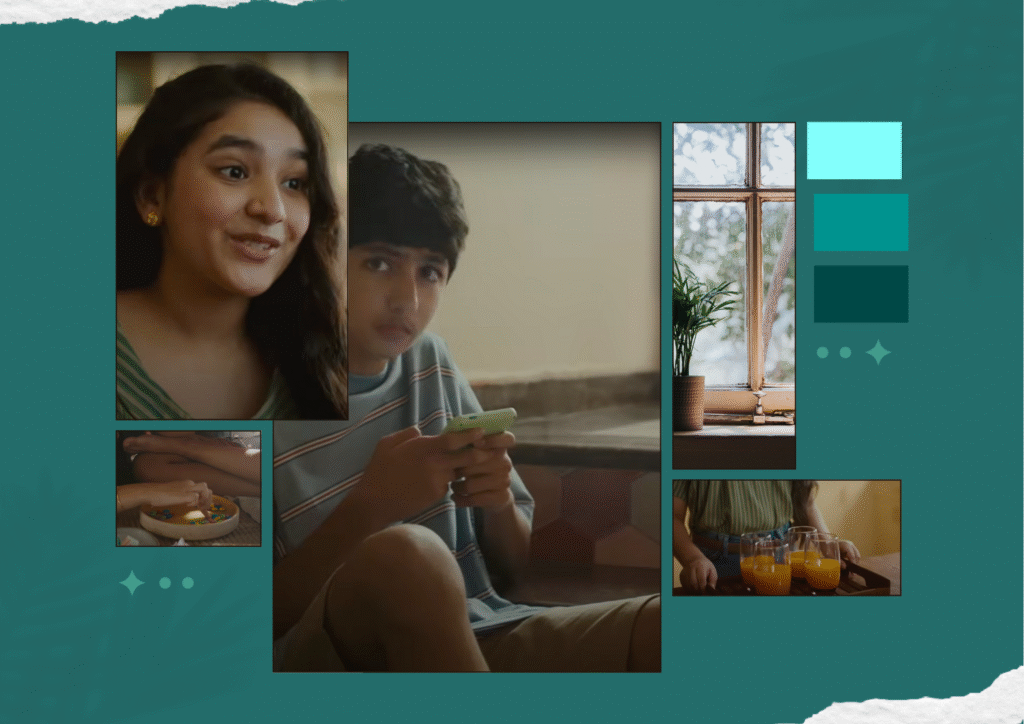
Within the home’s walls, the narrative lingers on scenes many might overlook: the sibling scuffle over chores. The brother, bashful and hesitant, admits, “I don’t know how to do all this.” His sister, unbending, quips, “As if they teach us all these school!” These moments, slice-of-life in their simplicity, dismantle years of gendered division of labour built into Indian households.
“Why do you think only I should do chores?”
Equality, the advert insists, is not posted on social media, but practised—folding shirts, setting the table, learning together. It’s both modelled and made mundane.
Rethinking Relationships and Pink Shirts
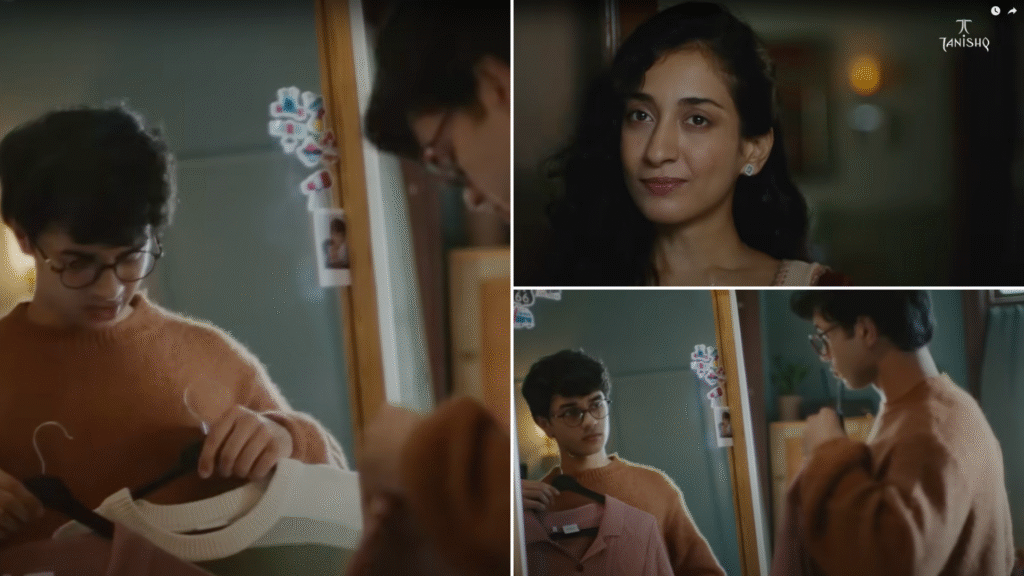
The film’s emotional tempo shifts as the sister guides her brother through relational landmines. Echoing the wisdom often denied girlhood, she tells him—when he is being presumptuous—“You mean, she knows what she wants.” Again in the same scene when conventional masculinity surfaces in the form of dilemma as to which shirt the young man should wear on his first date, she matter-of-factly suggests, “Wear the pink one!”
“Wear the pink one!”
Here, pink becomes a quiet rebellion, a question mark tacked to inherited prejudice, and a tangible act of everyday progress.
Visuals as Lived, Not Staged

Shot with the understated realism typical of director-driven indie cinema, the film replaces gloss with relatability. Intimate, sun-drenched interiors; laundry on the drying rack; no intrusive product close-ups. The Westside wardrobe—subtle, everyday—blends in, making branded intention feel secondary to life’s natural choreography.
This studied restraint is what endows the campaign with credibility. It is life as it is lived, not sold.
Soft Power in a Noisy Marketplace
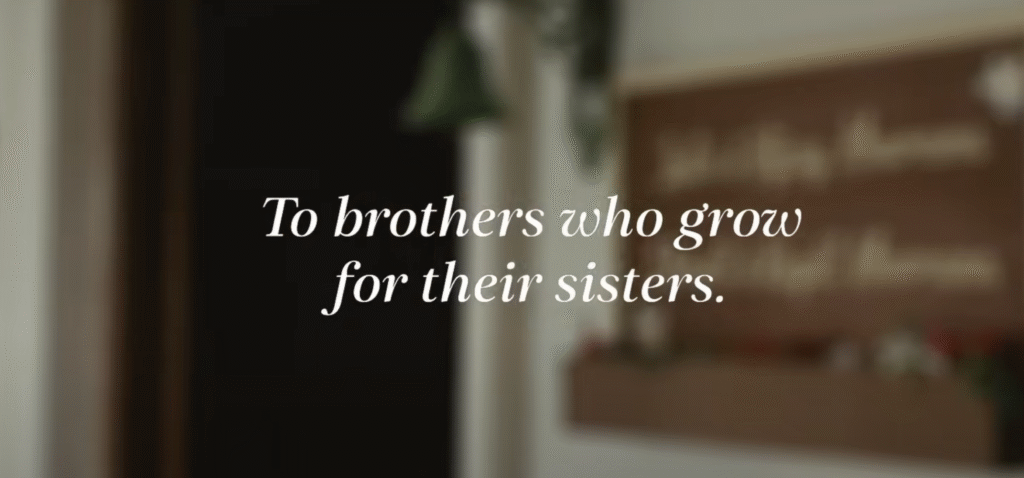
Tanishq’s approach is measured. Unlike their previous, more controversial efforts, “Brothers, Written by Sisters” dismantles the festival’s core tropes—but without making headlines for the wrong reasons. The focus on subtle, cumulative change rather than sweeping drama feels fresh in a category awash with hyperbole.
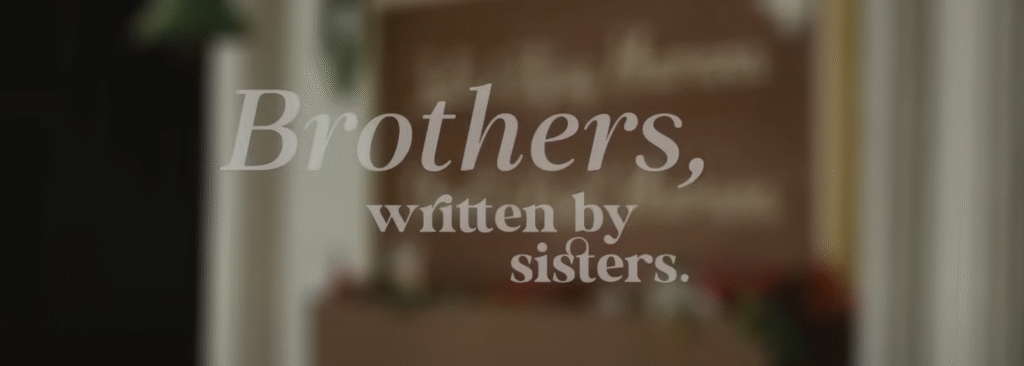
By championing domestic revolution through everyday gestures, the brand sidesteps accusations of tokenism. The jewellery itself plays a supporting role—there, but never overexposed. For some, this will prove a masterstroke of authenticity; for others, a missed retail opportunity.
What Progress Really Looks Like
What, finally, is the sum of this gentle upheaval? In an India still wrestling with deeply ingrained inequality, the campaign offers hope without hubris. The legacy it leaves is not just aesthetic or commercial, but cultural: rewriting what a family nameplate signifies, whose hands do what work, who teaches whom, and who gets to wear what.
“Change is possible, not through slogans, but through rewiring daily behaviour—and sometimes, just repainting a nameplate.”
If Raksha Bandhan is about vowing to protect, then protection itself, the film argues, means supporting not just safety, but equality, voice and agency. Sometimes, before a man finds his deepest values, he borrows them quietly from the women in his life—especially those unafraid to question what’s written on the door.
PS:
If this year’s campaign is any indication, the festival’s most meaningful rituals may soon extend further than ever before: perhaps, tomorrow, sisters will tie rakhis to their sisters—honouring care, empathy, and solidarity regardless of gender. And rather than the well-worn trope of sisters-in-law as outsiders or obstacles, we might see a cultural landscape where these bonds are strengthened through mutual support and respect, not interference. This gentle revolution—the move away from patriarchal scripts towards truly inclusive, nurturing kinship—is already being lived by many, but campaigns like Tanishq’s help spotlight the distance left to travel. By focusing on everyday gestures—a sister challenging the nameplate on the door, encouraging her brother to share household work, or upending colour stereotypes—we’re reminded that cultural change often begins not with grand declarations but with the quiet recognition of every relationship’s potential for equality. As we celebrate old traditions, let’s also welcome the new: a Raksha Bandhan where every sibling protects, supports, and shapes each other—without boundaries, roles or assumptions.
